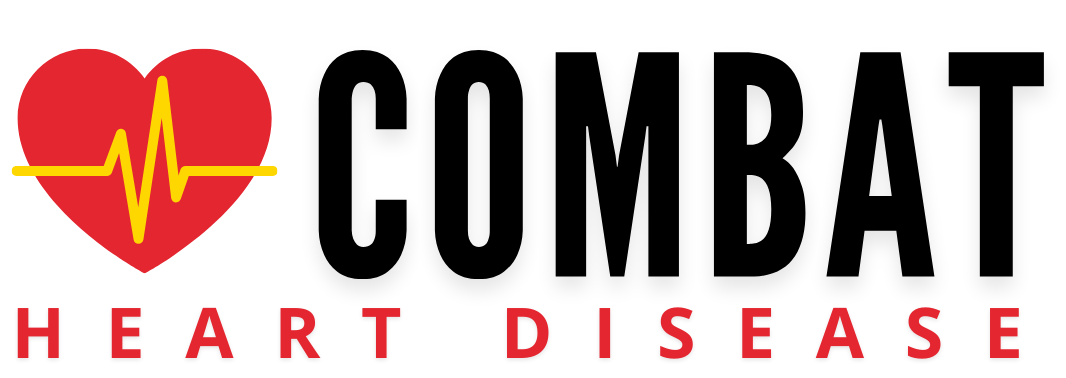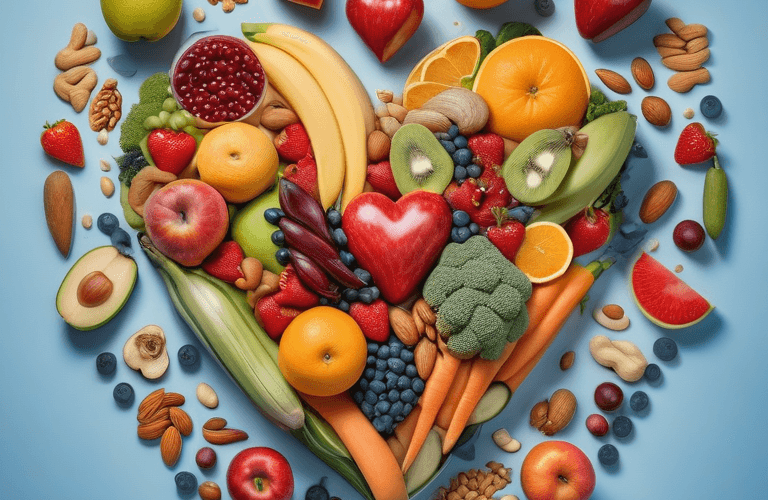Key Highlights
- Discover how specific foods can help you lower cholesterol levels rapidly.
- Learn about the top 7 foods that can swiftly reduce cholesterol and promote heart health.
- Understand the impact of diet on cholesterol levels and heart health.
- Explore the role of key nutrients like soluble fiber and healthy fats in managing cholesterol.
- Find out about essential lifestyle adjustments to enhance the effectiveness of your dietary changes.
- Gain insights into the importance of weight management and physical activity for overall heart health.
Introduction
Here are some foods that can help lower cholesterol and boost heart health, ultimately reducing your heart disease risk. These top 7 foods are packed with nutrients that fight high cholesterol levels. Eating these foods can be good for your heart and general health. Let’s explore each food choice and see how they help with cholesterol and heart wellness. Try to add these foods to your diet. They can help lower cholesterol levels and protect your heart.
Top 7 Foods to Quickly Lower Cholesterol and Boost Heart Health
Berries, legumes, and beans are full of soluble fiber, which helps reduce LDL cholesterol. Adding olive oil and liquid vegetable oils like canola, along with avocados, both great sources of healthy fats, can make your lipid profile better. Polyunsaturated fatty acids found in fatty fish provide omega-3 fatty acids that decrease triglycerides and raise HDL cholesterol levels. Nuts are also good for heart health because they have many nutrients. Whole grains, like oat bran, can lower the risk of heart disease. By putting these foods in your diet, you can control your cholesterol well and improve heart health.
1. Berries
Berries, like blueberries and strawberries, can help lower cholesterol quickly and improve blood lipids. They are full of antioxidants and soluble fiber, similar to benefits found in green tea. These nutrients help reduce LDL cholesterol and increase HDL cholesterol. Berries also have anti-inflammatory benefits that support heart health. This can lower the risk of heart disease. Eating different types of berries can help you manage your cholesterol better and improve your heart health. So, when you need a tasty and healthy snack, grab a handful of colorful berries.
2. Legumes and Beans
Legumes and beans, especially soy milk and soy protein from soybeans, are great for lowering cholesterol. They have soluble fiber, which helps reduce LDL cholesterol levels. This can lower the risk of heart disease. These superfoods also have plant sterols, which block cholesterol absorption. Adding kidney beans, soybeans, or lentils to your meals can improve your lipid profile. By replacing high-fat meats with these healthy options, you can improve your cholesterol levels and boost your overall health. Legumes and beans are tasty and can easily fit into a heart-healthy diet.
3. Olive Oil
Extra virgin olive oil is a key part of the Mediterranean diet, which is supported by numerous clinical trials. It is a healthy choice for your heart. This is because it has a lot of monounsaturated fats that can help lower LDL cholesterol. Olive oil is also full of antioxidants and can reduce inflammation. This helps lower the risk of heart disease. Adding olive oil to your meals can increase HDL cholesterol levels, which is good for heart health. By using olive oil instead of saturated fats, you can improve your lipid profile and lower the chance of heart problems.
4. Avocados
Avocados are full of nutrients, especially for overweight and obese adults. They are high in monounsaturated fats, which can help lower LDL cholesterol levels. These creamy fruits also have beta-sitosterol, a plant compound that helps reduce cholesterol absorption in the gut. Avocados offer many health benefits and are easy to use in various dishes. They can make food taste better and are good for heart health. Eating avocados can help lower LDL cholesterol and improve heart health overall.
5. Fatty Fish
Fatty fish like salmon, mackerel, and sardines are high in omega-3 fatty acids. These fats can help your heart and may also reduce the risk of metabolic syndrome. They reduce inflammation and lower triglycerides. Eating these healthy fats may lower LDL cholesterol and increase levels of HDL cholesterol, contributing to a balanced lipid profile. Regularly adding fatty fish to your diet could also cut the risk of heart disease and stroke. Because of this, it is important for a plan to lower cholesterol. You can improve your heart health by including fatty fish in your meals.
6. Nuts
Nuts are very healthy for healthy adults and can help lower total cholesterol and cholesterol levels. They are full of healthy fats and fiber, which can improve heart health. Walnuts, almonds, and pistachios are especially good for lowering LDL cholesterol. These snacks are also rich in important nutrients and antioxidants. Adding different kinds of nuts to your meals can really help manage cholesterol levels and support heart health.
7. Whole Grains
Whole grains have a lot of soluble fiber. This fiber can help influence the gut microbiome and lower LDL cholesterol levels. Some examples of whole grains are brown rice, quinoa, and whole wheat bread. Eating whole grains often can also lower the risk of heart disease and boost heart health. These foods are important for a balanced diet that helps manage cholesterol levels and supports overall health. Adding whole grains to your meals is an easy and effective way to take care of your heart health.
Understanding the Impact of Diet on Cholesterol Levels
Eating more soluble fiber, healthy fats found in olive oil, and foods rich in omega-3 fatty acids is the best way to help lower cholesterol levels a lot. Soluble fiber helps reduce LDL cholesterol. It binds to bile acids and helps get rid of them. Healthy fats from foods like avocados and fatty fish, which contain a type of fat beneficial for heart health, can raise HDL cholesterol levels. This makes overall cholesterol drop. Adding these foods to your diet can greatly help manage cholesterol, which reduces the risk of heart disease.
The Role of Soluble Fiber in Cholesterol Management
Soluble fiber is important for managing cholesterol. It binds with cholesterol in the gut and helps reduce how much gets into the bloodstream. This process lowers LDL cholesterol levels, which is good for heart health. Foods high in soluble fiber include oats, barley, and fruits such as apples and citrus. By adding these fiber-rich foods to your meals, you can help keep your cholesterol levels healthy and lower the risk of heart disease.
How Healthy Fats Contribute to a Balanced Diet
Including healthy fats, such as unsaturated fat from olive oil and fatty fish, as well as polyunsaturated fats from avocados and nuts, in your diet is important for a balanced diet. Healthy fats are good for your heart as they lower LDL cholesterol levels. These fats also help raise HDL cholesterol, which is beneficial for heart health. You can support your heart by adding healthy fats from avocados and nuts to your meals. This can help reduce the risk of heart disease and promote overall heart health.
Foods high in soluble fiber and their cholesterol-lowering effects
Berries, beans, and whole grains, including Brussels sprouts, are high in soluble fiber. This type of fiber is known for lowering cholesterol. Soluble fiber sticks to cholesterol in the digestive system. This process helps to lower the amount of cholesterol going into the blood. Berries, such as strawberries and blueberries, kidney beans, and oat bran are some great options. Adding these foods to your meals can help lower LDL cholesterol levels and better your lipid profile. Eating a mix of fiber-rich foods, including Brussels sprouts, is good for heart health and can help with managing cholesterol.
Lifestyle Adjustments to Complement Your Diet
Regular exercise is very important to lower cholesterol and improve heart health. Keeping a healthy weight helps your heart as well. If you add exercise to your daily life and manage your weight, you can lower the risk of heart disease a lot while avoiding potential side effects. Making these changes, along with eating foods that help lower cholesterol fast, will greatly improve your lipid profile. This can lower LDL cholesterol levels, leading to a healthier heart.
Physical Activity: A Key Component in Lowering Cholesterol
Engaging in regular exercise is very important for lowering cholesterol levels, including bad cholesterol. Working out helps your heart health and is a key way to reduce high cholesterol. Physical activity can raise HDL cholesterol levels, which are good for your health. It also helps you manage your weight, lowering the risk of heart disease. By adding exercise to your daily routine, you can improve your lipid profile and lower LDL cholesterol levels, which supports a healthier heart. Being physically active is essential to keep your cholesterol levels and overall health in check.
The Importance of Weight Management in Maintaining Heart Health
Maintaining a good weight as part of a healthy lifestyle in the United States is important for heart health. Being overweight can lead to high cholesterol levels, which raises the risk of heart disease. By keeping your weight in check, you can lower LDL cholesterol and boost overall heart health. Managing your weight helps lower the risk of heart diseases and keeps blood pressure at a healthy level. Regular exercise and a balanced diet that includes heart-healthy foods can help with weight control. This, in turn, can reduce the risk of heart problems.
Conclusion
In conclusion, adding these top 7 foods to your diet can help improve your heart health. You should include berries, legumes, olive oil, avocados, fatty fish, nuts, and whole grains. These foods can help lower cholesterol levels and decrease the risk of heart disease. It is important to know how diet affects cholesterol. Also, making lifestyle changes like exercising regularly and managing your weight can support these efforts. Focusing on a diet rich in healthy fats and soluble fiber can positively impact your overall health and well-being.
Frequently Asked Questions
What Foods Should I Avoid If I’m Trying to Lower Cholesterol?
To lower cholesterol, stay away from foods that have a lot of saturated and trans fats. This includes fried foods, processed snacks, and fatty meats. You should also limit how much full-fat dairy products you eat. Baked goods with hydrogenated oils are best to avoid too. Instead, choose healthier options to support your heart health.
How Quickly Can Diet Affect Cholesterol Levels?
Adding foods that lower cholesterol to your diet can make a difference in just 4 to 6 weeks. Foods like berries, legumes, olive oil, avocados, fatty fish, nuts, and whole grains can help lower cholesterol quickly. Eating these foods regularly is important for lasting results.
Are Eggs Safe to Eat for Those Concerned with Cholesterol?
Eggs can fit into a heart-healthy diet for most people, even if they are watching their cholesterol. Eggs have a lot of dietary cholesterol, but studies show that they don’t greatly affect blood cholesterol levels. It is important to eat them in moderation and balance them with other foods that are rich in healthy fats and fibers.
Can Dietary Changes Alone Lower High Cholesterol to Safe Levels?
A balanced diet with berries, legumes, olive oil, avocados, fatty fish, nuts, and whole grains can help reduce high cholesterol levels. Eating these foods is good for you. However, it is best to consult a healthcare professional for personal advice.
Beyond Diet: Other Factors Influencing Cholesterol
Discover how stress, not exercising, smoking, and genetics can affect your cholesterol levels. You can learn to control these factors by following a healthy diet for your heart health. Use a well-rounded approach to lower cholesterol in an effective way.




